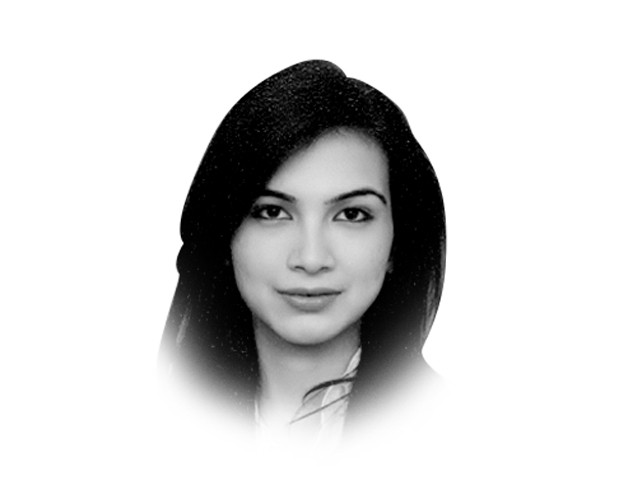My six days in India
Why promote an imperfect India when you have the beautiful, Bollywood version?

The writer is senior sub-editor at The Express Tribune
On the other side of the border, the green fields and presence of cattle make you feel like you never left Pakistan. But the sudden emergence of industry, products and commerce command your attention. Posters and hoardings of Vodafone, Fair and Lovely and Thums Up stand proud even amidst shanty towns and roadside dhabas. After stretches of huts and dilapidated one-storey homes, an impressive-looking building with a hilarious sign reading “Lovely Professional University” will tickle you, smack out of nowhere, as if screaming ‘Welcome to Shining India’.
There were many more surprises still. Rumours awaited us in Chandigarh. As exciting as it was for the city to be home to a colourful cross-border wedding, the Indian media couldn’t help but spread gossip that the Pakistani bride is the daughter of Chief Minister Shahbaz Sharif. The paparazzi chased her into elevators and the tabloids had a field day posting about it online. Some guests from our wedding party, too, got calls from curious quarters, wondering if the bride really is Nawaz Sharif’s niece. Thankfully, her in-laws issued a statement denying the rumour and the shaadi gossip in India was, once again, restricted to whether or not the young Pakistani girls attending were good-looking and how old the bride is etc. The gossip in Pakistan, however, centred on whether or not the boy had converted. He clarified that he had.
The surprises and gossip didn't spare the Chandigarh Press Club, billed as one of the best in Asia, where I had accepted an invitation for lunch. Inside one of the meeting rooms, much to my confusion, a ‘press conference’ had been organised. At a long desk with about 10 chairs, I took the seat left vacant for me at the head of the table as about a dozen other journalists squeezed in.
A rapid fire round had started.
“Do you call Pakistan a democracy? How can it be a true democracy if heads of state have to go into self-exile when their tenures end? Pakistan’s media is absolutely free — yes or no? Why is it that every time Nawaz Sharif comes into power, skirmishes crop up at the LoC?”
One after the other, reporters from daily English, Hindi and Punjabi newspapers and local TV channels bombarded me with questions I struggled to answer. I reminded them that I am not an authority or representative of any organisation except my newspaper and that their questions would be better addressed by a government or military spokesperson. One kind journalist stood up for me, clarified that questions should be restricted to Life & Style (the section I head at ET) and my impressions of Chandigarh. So they eased up and asked: “Who is your favourite actor in India and Pakistan? Is Pakistan a safe place for a female journalist? If you don’t mind me asking, how old are you?”
Their aggressive curiosity caught me off-guard at times, but I kept telling myself that it is a typically desi trait. Apart from being a race who loves to mind others’ businesses more than our own (and that goes for Indians and Pakistanis), as journalists they were just looking for a khabr (which did appear the next day in the Indian Express and Daily Post, with a photo and everything).
During my six days in India (I later also went to Delhi for a short trip), I met people who gave me varying versions of reality. Some vociferously defended the “absolutely independent” Indian media, while others in smaller, informal groups talked openly about censorship and the complications with advertisers. Few said the focus on rape in India was exploited by the media, while some insisted Delhi was not safe for a single woman venturing out at night. With more open-minded journalists in both Chandigarh and Delhi, the conversations did not shy away from discussing self-censorship in media, or corrupt practices within the government and police on both sides. It was possible to laugh at ourselves and the misgivings regarding those in power.
But I was also amazed to meet the optimistic protectors of the Eat Pray Love version of India. Maybe the shock was warranted, since I come from the land where we are the first to criticise ourselves – a place where there is generally plenty of gloom and doom to rant about. It made me wonder what description of Pakistan we would present to a visiting, probing Indian. Some of it began to make sense – Why promote an imperfect India when you have the beautiful, Bollywood version, complete with the silks, spices, thriving middle class and Mahindras?
Published in The Express Tribune, September 21st, 2013.
Like Opinion & Editorial on Facebook, follow @ETOpEd on Twitter to receive all updates on all our daily pieces.















COMMENTS
Comments are moderated and generally will be posted if they are on-topic and not abusive.
For more information, please see our Comments FAQ